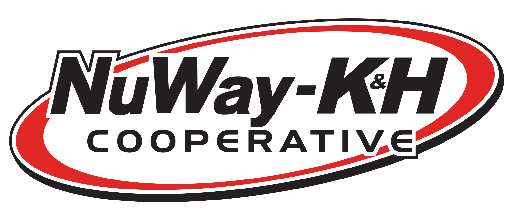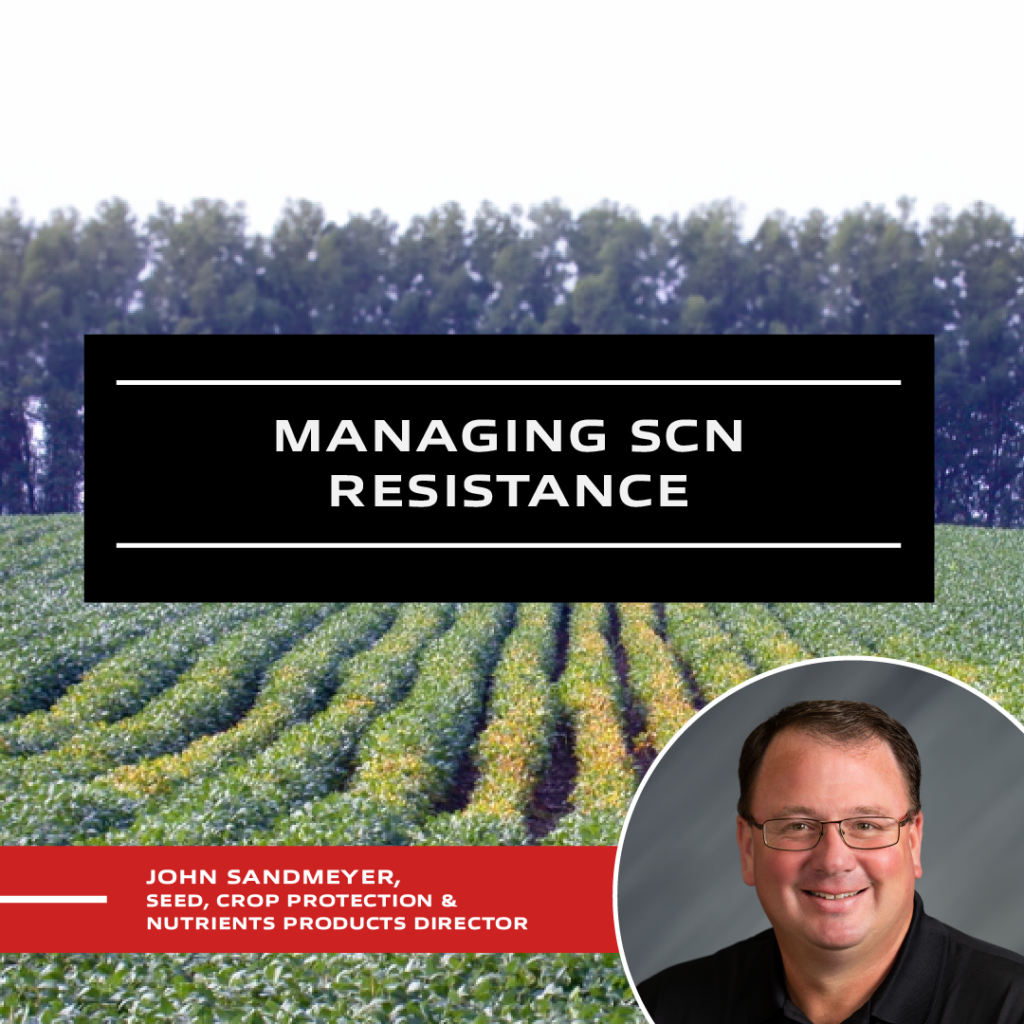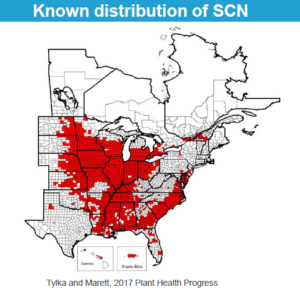JOHN SANDMEYER, Seed, Crop Protection & Nutrients Products Director
Soybean cyst nematode (SCN) is the leading cause of soybean yield loss in North America, resulting in over 100 million bushels lost yearly, with an average loss of 5.1 bu./A. (Source: BASF)
SCN is present in nearly all soybean geographies and continues to spread. With this story I’ve reproduced a map entitled Known Distribution of SCN. Study it. You will see it includes the state and county in which you farm.
You can expect anywhere from 1 to 2.5 bu./A yield loss for every 1,000 SCN eggs present at planting. Once you have SCN in your field, all you can do is try to manage it by using crop rotation and resistant varieties.
For years we have depended on using seed with a resistant gene (PI 88788) and that has managed our SCN population very well. In the last few years, however, we have seen some resistance to this gene. Studies show that, in Minnesota, SCN is able to overcome the PI 88788 gene 72% of the time.
We have introduced some new soybean varieties carrying the PEKING gene to help manage your SCN populations. Is PEKING the answer? Perhaps, in the short-term. However, Levi Kermes, our seed brand implementation specialist, took cyst nematode samples across 2,000 acres this spring and fall. These samples showed an average of 2,300 SCN eggs at planting and a final average count of 5,300 eggs after harvest—an average increase of 195%. Levi’s samples included fields planted with both PI88788 and PEKING varieties.
If you have high SCN levels in your fields, it would be recommended to use crop rotation, PEKING varieties AND try seed treatment options like ILeVO® from BASF. Depending on the rate you use, this is a seed treatment that will help with SCN along with SDS (sudden death syndrome).
ILeVO® at a .6-ounce rate per unit will give you protection against SCN, and a 1.18-ounce rate per unit will give you protection against both SCN and SDS. Studies show a 2- to 4-bushel increase by using ILeVO® when there is no SDS pressure in the field.
We must continue to keep an eye on SCN and manage the best we can to minimize yield loss and lost revenue.



